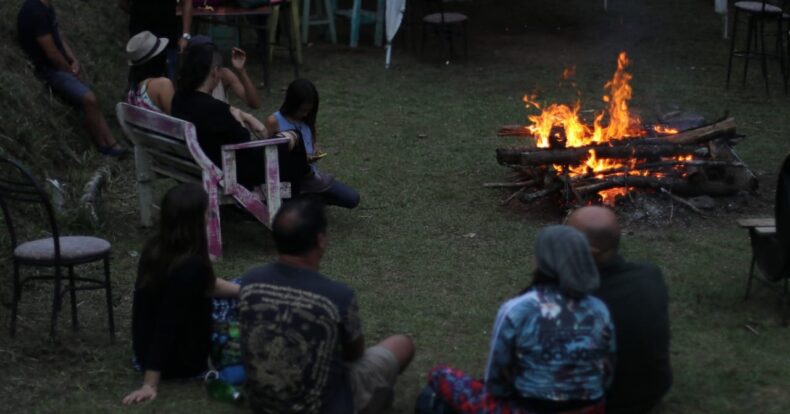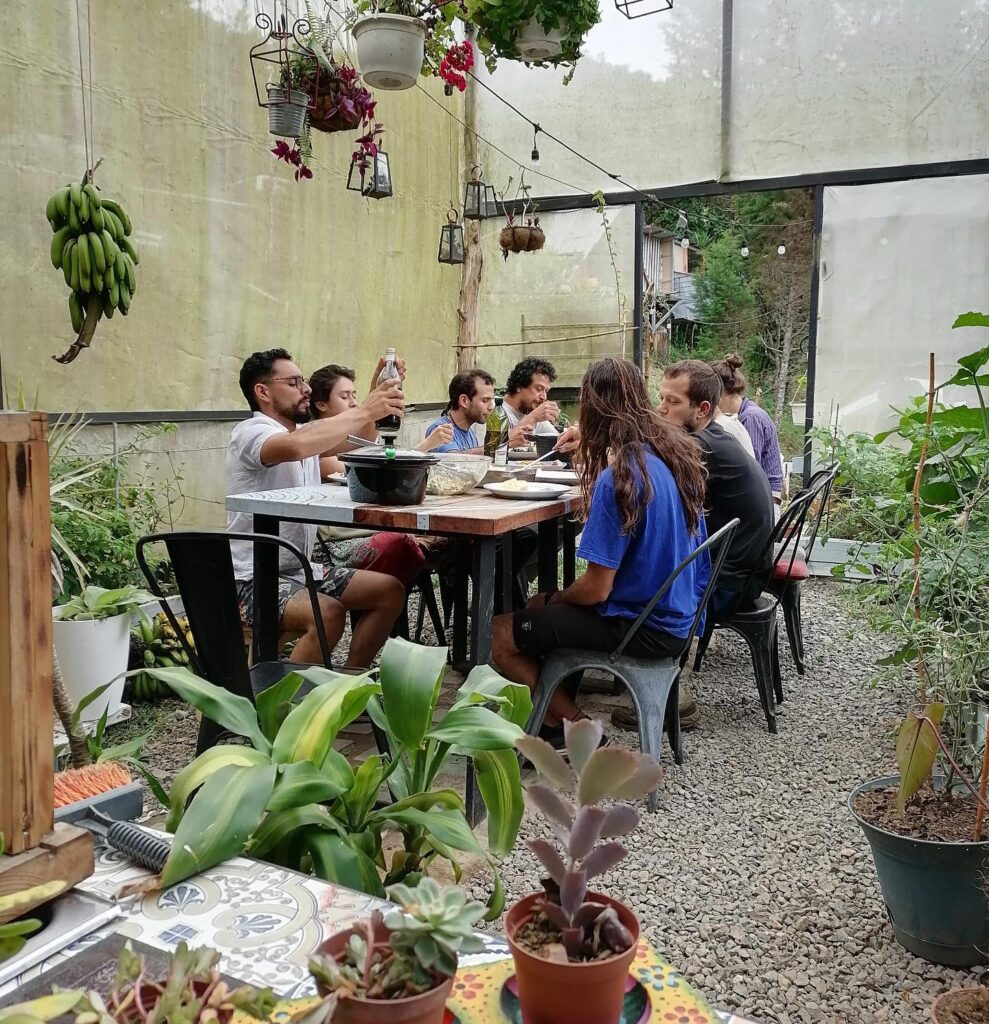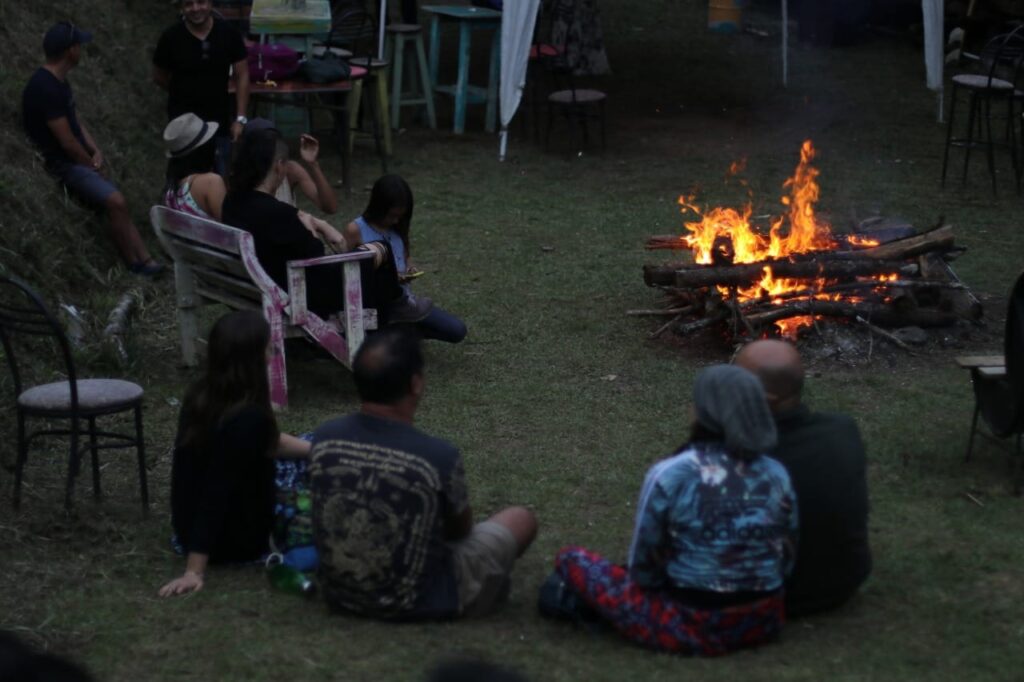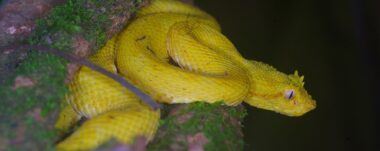Discovering Tierra de Pardos: Culture, Nutrition and Environment in Harmony

Tierra de Pardos, an agro-ecological farm that connects with the Afro-Caribbean ancestors and the indigenous roots, laying the foundations of cultural identity. Furthermore, the restaurant tells its own story under a similarity between everything lived by our peoples. The recognition of a silenced history and the defense of our roots become acts of resistance.
Part of the resistance is to recognize our origins and ensure that the untold story has a voice, especially to ensure that its transcendence, which will allow us to understand our present, this is the case of our Puebla de los Pardos.
Natalia Aguilar
Tierra de Pardos Renovation through Gastronomy.
The “Tierra de Pardos” initiative was born 10 years ago with Malanga Fusión Caribe, directed by the chef Darwin Gonzales Monge and managed by Natalia Aguilar. This gastronomic project set out to tell the story of Afro-Costa Rican roots and redefine Afro-Costa Rican cuisine.
From research and visits to indigenous communities, information was gathered about the ancestors and the struggle they experienced when they lost everything during colonization. The COVID-19 pandemic negatively impacted the project, leading to the financial loss and closure of Malanga Fusion Caribe. Despite this, a colleague of the Chef presented the opportunity to continue under the name “Tierra de Pardos”, taking advantage of permaculture and sustainable agriculture principles to create a space for resilience and community development.
The mission of the project encompasses the creation of an optimal space guided by the principles of Permaculture, merging food and production in an educational context. Its vision is clear: to offer a holistic recreational environment that fosters improvements in the quality of life. While it does not take a conventional restaurant approach, this one focuses on the overall health and well-being of the environment. Its aspiration is to evolve into an agro-ecological lodging center.
Towards a Conscious Food.
The distinguishing feature of Tierra de Pardos lies in its commitment to local production, the use of homegrown products and the formulation of menu alternatives that reflect food awareness. Workshops and educational activities facilitate the transmission of these nutritional values to both the local community and visitors, generating an increased awareness of food and its implications.

The farm employs agroecological and permacultural practices as pillars of its operation, ensuring sustainability and preservation of the environment. Intercropping, water recycling and soil regeneration are part of this equation. In addition, it actively participates in community initiatives to improve the quality of life and protect the ecology.
To put it another way, the impact on the community is manifested through environmental awareness and the generation of positive change. This awareness is conveyed through workshops, classes and events. Moving forward, we envision a continuation of these efforts, as well as the promotion of sustainable practices.
Sustainable Reinvention
The initiative began with the formation of a local community association focused on environmental issues. The purpose behind this is to promote sustainable tourism development. Currently, the food service provided is integrated as part of the various activities carried out in the community. In this sense, it is not presented as a restaurant in the conventional sense. Activities include physical exercises such as hiking and yoga, as well as workshops on kombucha brewing, baking, sustainability and agriculture, among others.
At the moment we are not going to operate as a restaurant. We have two factors that also complicate the formal opening for the moment, the first is that the area does not have rainwater distribution, which does not meet the requirements to apply for a patent, so part of the objectives of PERMACULTURE, is to identify the essential needs of the community, and clearly the water service is one of the most important.

Participation in food fairs plays an important role in the development of menu options and baked goods, since own production is not yet viable due to the lack of water supply. Instead, collaboration with neighboring farms that are engaged in organic farming is resorted to. This is aligned with the km0 project concept, which seeks to consume products that have a radius of origin of only 1 km or come from the same province. Such strategy contributes to reducing the carbon footprint, fostering the circular economy and supporting local commercial identity.
Every learning is slow, mainly loaded with love, love for ourselves, when we decide to give ourselves the best, what we deserve and mainly need, always aware that each of our actions do not generate an impact on the environment; if there is love, there is no punishment, therefore we must not recriminate ourselves relapses that generate feelings of failure, contrary really internalize to understand what was the trigger of that failure to not repeat it and if this happens understand that we have for many years we have been the product of a food slavery between the green revolution and food cosmetology. This is and will be the reason or the promoter of the existence of TIERRA DE PARDOS, to be able to offer small spaces that allow accessibility to information without subjugation and violence.
Natalia Aguilar
Sensorial Sunsets in collaboration with Natalia Aguilar.
Navigate articles





